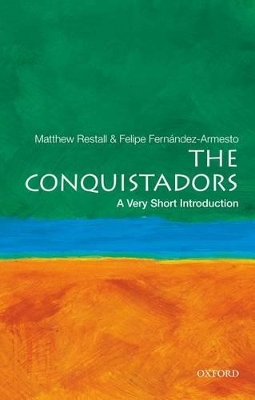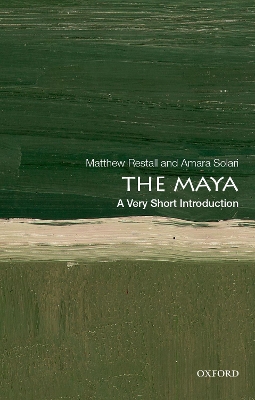Very Short Introductions
2 total works
The Conquistadors: A Very Short Introduction
by Matthew Restall and Felipe Fernandez-Armesto
Published 23 February 2012
With startling speed, Spanish conquistadors invaded hundreds of Native American kingdoms, took over the mighty empires of the Aztecs and Incas, and initiated an unprecedented redistribution of the world's resources and balance of power. They changed the course of history, but the myth they established was even stranger than their real achievements. This Very Short Introduction deploys the latest scholarship to shatter and replace the traditional narrative.
Chapters explore New World civilizations prior to the invasions, the genesis of conquistador culture on both sides of the Atlantic, the roles black Africans and Native Americans played and the consequences of the invasions. The book reveals who the conquistadors were and what made their adventures possible.
ABOUT THE SERIES: The Very Short Introductions series from Oxford University Press contains hundreds of titles in almost every subject area. These pocket-sized books are the perfect way to get ahead in a new subject quickly. Our expert authors combine facts, analysis, perspective, new ideas, and enthusiasm to make interesting and challenging topics highly readable.
Chapters explore New World civilizations prior to the invasions, the genesis of conquistador culture on both sides of the Atlantic, the roles black Africans and Native Americans played and the consequences of the invasions. The book reveals who the conquistadors were and what made their adventures possible.
ABOUT THE SERIES: The Very Short Introductions series from Oxford University Press contains hundreds of titles in almost every subject area. These pocket-sized books are the perfect way to get ahead in a new subject quickly. Our expert authors combine facts, analysis, perspective, new ideas, and enthusiasm to make interesting and challenging topics highly readable.
The Maya forged one of the greatest societies in the history of the ancient Americas — and in all of human history. Long before contact with Europeans, Maya communities built spectacular cities with large, well-fed large populations. They mastered the visual arts, and developed a sophisticated writing system that recorded extraordinary knowledge in calendrics, mathematics, and astronomy. The Maya achieved all this without area-wide centralized control. There
was never a single, unified Maya state or empire, but always numerous, evolving ethnic groups speaking dozens of distinct Mayan languages. The people we call "Maya" never thought of themselves as such; yet something definable, unique, and endlessly fascinating - what we call Maya culture - has clearly
existed for millennia. So what was their self-identity and how did Maya civilization come to be "invented?"
With the Maya historically subdivided and misunderstood in so many ways, the pursuit of what made them "the Maya" is all the more important. In this Very Short Introduction, Restall and Solari explore the themes of Maya identity, city-state political culture, art and architecture, the Maya concept of the cosmos, and the Maya experience of contact with — including invasion by — outsiders. Despite its brevity, this book is unique for its treatment of all periods of Maya
civilization, from its origins to the present.
was never a single, unified Maya state or empire, but always numerous, evolving ethnic groups speaking dozens of distinct Mayan languages. The people we call "Maya" never thought of themselves as such; yet something definable, unique, and endlessly fascinating - what we call Maya culture - has clearly
existed for millennia. So what was their self-identity and how did Maya civilization come to be "invented?"
With the Maya historically subdivided and misunderstood in so many ways, the pursuit of what made them "the Maya" is all the more important. In this Very Short Introduction, Restall and Solari explore the themes of Maya identity, city-state political culture, art and architecture, the Maya concept of the cosmos, and the Maya experience of contact with — including invasion by — outsiders. Despite its brevity, this book is unique for its treatment of all periods of Maya
civilization, from its origins to the present.

